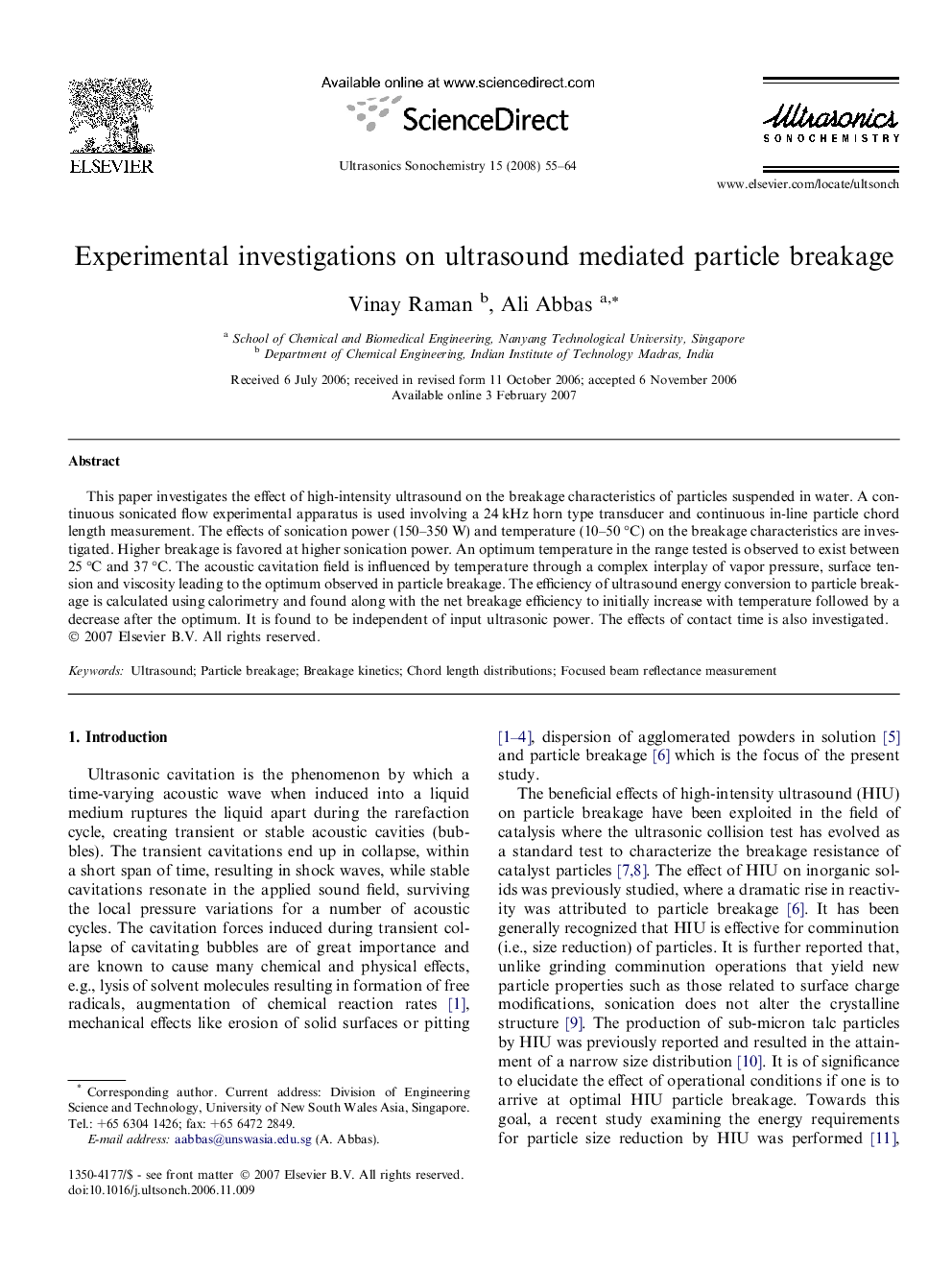| Article ID | Journal | Published Year | Pages | File Type |
|---|---|---|---|---|
| 1271005 | Ultrasonics Sonochemistry | 2008 | 10 Pages |
This paper investigates the effect of high-intensity ultrasound on the breakage characteristics of particles suspended in water. A continuous sonicated flow experimental apparatus is used involving a 24 kHz horn type transducer and continuous in-line particle chord length measurement. The effects of sonication power (150–350 W) and temperature (10–50 °C) on the breakage characteristics are investigated. Higher breakage is favored at higher sonication power. An optimum temperature in the range tested is observed to exist between 25 °C and 37 °C. The acoustic cavitation field is influenced by temperature through a complex interplay of vapor pressure, surface tension and viscosity leading to the optimum observed in particle breakage. The efficiency of ultrasound energy conversion to particle breakage is calculated using calorimetry and found along with the net breakage efficiency to initially increase with temperature followed by a decrease after the optimum. It is found to be independent of input ultrasonic power. The effects of contact time is also investigated.
